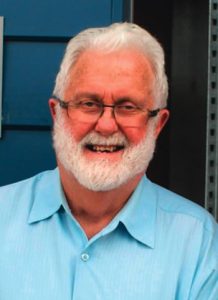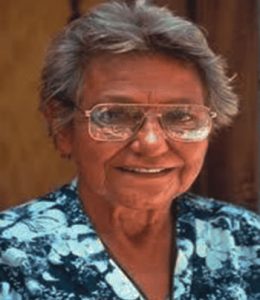What’s in a Name?

By Fr Kevin Bates sm
Last weekend, one of my nieces gave birth to a little boy. There’s nothing remarkable in that, I suppose, as I have nieces performing similar feats rather regularly these days!
For Rebecca, the niece in question and her husband Tim, this little boy is their second child. What prompts this reverie, however, is the little man’s name and the unexpected impact it had on me.
I received a text from my sister shortly after the birth stating that our new baby was to be known as Albert Haydn Paul. Haydn and Paul are the new baby’s grandfathers. Albert is my own father’s name.
Dad died in 1986 when Rebecca was a very small child. He is the great-grandfather of our new-born Albert. When I received my sister’s text, something jumped inside me and tears flowed without warning.
Something beyond words was happening, something sacred perhaps, and something with many levels of meaning waiting to be explored.
My Dad was lovable, funny, musical, hard-working and a child of the Great Depression. He died young, with lungs damaged by smoking and paint fumes from his work. We knew his love, his gifts and his faults.
Through the grace of Rebecca and Tim, our little Albert’s arrival brought back memories, polished them up and gave them a new starting point.
We have a long tradition in which names somehow carry a family’s or a community’s story. Many children still carry the name of a grandparent or other much-loved relative, linking them by name to those who’ve gone before them.
As Catholics, we often named children after great saints or people whose faith or dedication we admired.
Some cultures use names that celebrate their environment, the power of nature, tribal history, virtues or hopes.
We learn from our own and other traditions that names have a certain sacred character and often reflect the society from which they emerge.
In our contemporary western society, we have run into a certain cultural vacuum to a point. Our values are often expressed in vague language that seems afraid of giving offence to those whose values differ from ours. Many of our heroes are short-lived celebrities rather than long-lasting saints. The cult of the individual shapes much of our society, to the point where the individual has rights that often overshadow those of the community.
Our culture encourages us to be ourselves, accentuate our differences, celebrate or even worship our individuality.
The names of many newly-born children reflect this trend. Many traditional names are re-used with badly mangled spelling! Some children are named after celebrities. Some are named, as I’m sometimes told, “because it sounds nice.”

Oodgeroo Noonucca
In this mode we end up with a sea of blandness, a community whose names hold no stories, no memories. It’s as if each person has to start life from scratch without the blessing of a shared memory.
One of the means that conquering nations use to subjugate peoples, is to destroy local language and to force people to change their names to fit the culture of the conqueror.
For instance, the great Australian poet, Oodgeroo Noonuccal, spent most of her life being known as Kath Walker. We gave her a white-fella name, and in doing so, denied the sacredness of her own name and story.
It could be a helpful, creative and enjoyable thing to spend some family time reflecting on your names, their stories and the people who have lived behind those names.
We believe in the Communion of Saints. We belong with each other. In naming each other, we name the stories of those on whose shoulders we stand. We remind ourselves that we are part, albeit a precious part, of a much bigger picture.
What’s in a name? There may well be a sacred spark, a memory, a joyful sense of belonging waiting for us, if we explore this iconic question that Shakespeare gave us.
 Entries(RSS)
Entries(RSS)